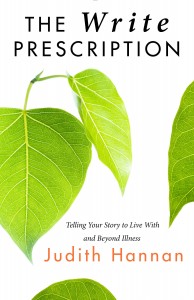SONG IS NOT A LUXURY
The above line comes from writer, philosopher, and cancer survivor Mark Nepo’s book, The Exquisite Risk. Nepo had traveled to South Africa and was struck that person after person suffering extraordinary hardship would sing, as if song were both protection and nourishment. This proves, Nepo says, “… that song is not a luxury but a necessary way of being in the world, of keeping the soul anchored in hard time, a way for each of us to experience the fullness of life, no matter what difficulties we wake in.”
My own experience confirms this. I have been making music almost since toddlerhood. I remember going to my flute lessons and complaining to my teacher that I was getting a migraine and didn’t think I could play. “Let’s just play some duets together,” she’d say. “If you don’t feel better in fifteen minutes, we’ll stop.” We never stopped. I always felt better.
I struggle to find transformation in silent meditation. The times I have been moved beyond my body have all involved music. In Motherhood Exaggerated I write about performing a beautiful musical conversation that appears in Bach’s St. Matthew Passion for alto soloist and flute. The performance took place in a gloomy, Gothic cathedral, a physical representation of the depression and anxiety that had settled over me in college. The singer was the voice teacher with whom, as a music major, I had had to study. She had shown me no warmth. But making music together transformed us into intimates. The cathedral and the gloom, internal and external, vanished. At the end, I was just music, not body or breath.
My son Max has sung and whistled his way through his twenty one years. I used to assume he was expressing joy. But over the years I realized Max intuited that making song is a weapon against anxiety and fear. He was making his own joy.
Dance is music made visible. A teacher once told me I shouldn’t move or sway when I played the flute; it meant I was siphoning feeling from the music I was making. I tried to stay still until a friend told me how beautiful I looked when I moved. I was beautiful because I was expressing myself in the fullest way I knew how.
Nadia is a dancer now. I’m not surprised. It was from her that I learned that people with cancer can—in fact they should—dance. It’s what she did every time she heard music, whether tethered to an IV pole, still limping after surgery, or in glorious freedom at home between treatments.
Writing Prompt
Write about a time when music—playing it or listening to it—transported you, brought you from one state-of-mind to another. If you play an instrument or just sing in the shower, write about how it feels to make music. Describe specific scenes of when you turned to music—after a day at work when you were ready to give notice, a fight with a friend, a slog through rush hour traffic. What kind of music did you turn to? Did you dance, sway, or move? Were you alone or with others? Write about the physical sensations within your body.
Now write about the role of music during a time of illness, caregiving, or grief. Once again, be specific in setting your scene, probing your sensations, making the music alive once again.
Additional Suggestion
Set aside twenty to thirty minutes to listen to any music of your choice. Close your eyes and, without analyzing, allow yourself to feel yow your body and heart are responding. Let your thoughts float by without comment. When the music is over, take five to ten minutes and, without pausing or lifting your pencil from the paper (or fingers from the keyboard) write whatever comes to mind about the experience.


